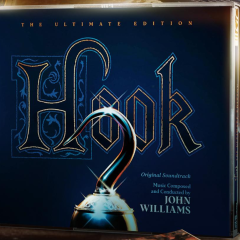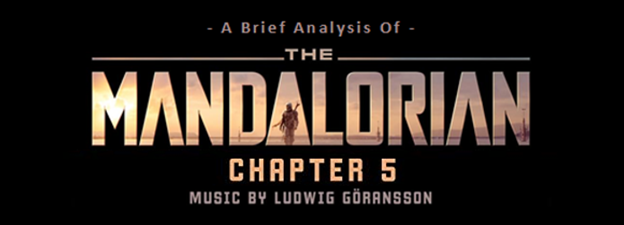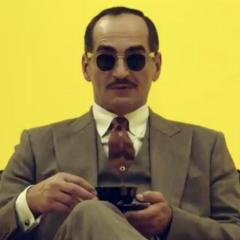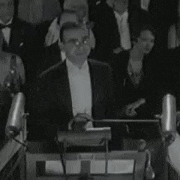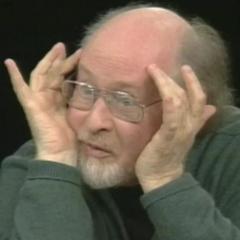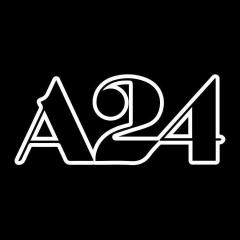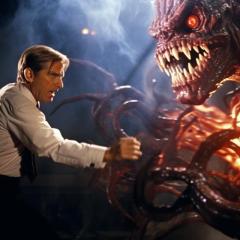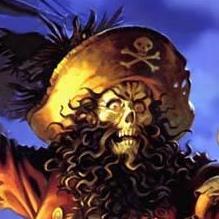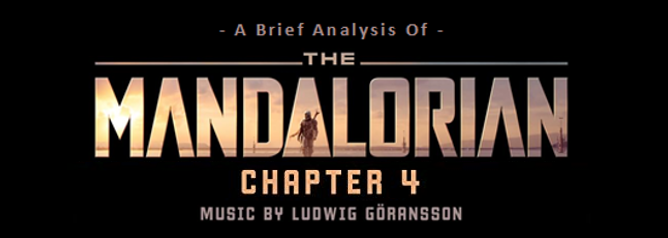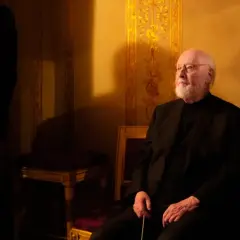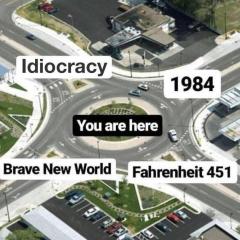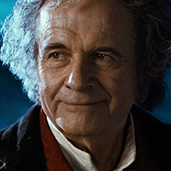Leaderboard
Popular Content
Showing content with the highest reputation on 27/09/20 in all areas
-

The Official La-La Land Records Thread
Smeltington and 5 others reacted to Brundlefly for a topic
And JFK and Nixon! And JFK and Nixon! And JFK and Nixon! And JFK and Nixon! And JFK and Nixon! And JFK and Nixon! And JFK and Nixon! And JFK and Nixon! EDIT: What the fuck happened?!6 points -
Updated main post with new videos: The Greenhouse Effect The Operating Room / Dr. Eddie And Miss Van Eyck The Swimming Pool Deploying The Spyders / Freezing Water Saving The Eye How Much Time Have We Got? Another Vision3 points
-
Was Jurassic Park Theme song original?
Biodome and one other reacted to Marian Schedenig for a topic
2 points -
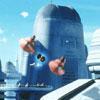
Best-Scored Films
bruce marshall and one other reacted to Bespin for a topic
Best scored movies? Out of Africa E.T. Psycho Star Wars Empire Strikes Back I deliberately excluded Jaws, because I love the movie and I love the score, but... In Some scenes, the music is a bit "too much"...2 points -
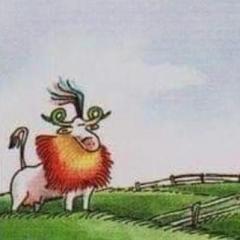
Ludwig Göransson & Joseph Shirley's THE MANDALORIAN (2019-present)
Disco Stu and one other reacted to The Illustrious Jerry for a topic
I'll be honest when I say that the score to Chapter 5 was not as immediately keeping as the episodes prior, but over time I have come to appreciate the progression it marks in the series. It's hardly a musical turning point, but there are certainly some new tones that appear in passing as the mid-season one-off adventure permits. Considering how diverse the sound palette of the show is, this particular chapter features some of the strongest mismatching of ideas, ranging everywhere from a brass-led space dogfight to a dynamic twangy guitar setpiece. Interestingly enough, Chapter 5 boasts the shortest runtime of all the mini-albums, clocking in at twenty minutes, with less than two minutes of unreleased music, as I'll discuss further (note that after Chapter 4 I have not rewatched with unreleased music in mind, so I'm leaning on CGCJ's fantastic spreadsheet at this point). Let's give it a shot! Unfortunately, we don't hear much of Warm or Cold in the episode proper. Fortunately, the cue is included in its entirety on the OST. Surprisingly, this is the first taste of space battle music, as any other flying scenes have acted as transitions thus far (aptly underscored by that wavy synthesizer). Suspended strings run up and down as the fanfare gets stretched and pulled across the orchestra. As the stakes heighten, the utility theme walks a tightrope and delivers a strong sense of danger. A short intro segment sounds confidently as the tables turn, and leads into a verbatim Western title card. Dead Heads is a forty-second unreleased cue that, if I recall correctly, largely features a drum pattern used multiple times throughout the series. Bright Eyes is most certainly a delectable little nugget in the grand scheme of the score. An uncertain opening of eerie synths make way for a lighthearted pizzicato and woodwind serenade, with dressings from harp and a certain "marimba"-esque synth that should ring familiar for those who read my write-up on Chapter 4. This cheery, bouncing excerpt takes the cake over the off-kilter Jawa motif (we'll get there in a moment) for the most Prokofievan melody in the show, embodying that playful innocence that Williams' tapped into with the Ewoks. It's certainly a unique passage in the score, standing above comparison to any other cue. Stuck With Me Now, to me, is fairly standard underscoring. We hear a deep, dark string line, foreshadowing the changing fate of the newly introduced rookie bounty hunter, but there's little else of note present here. Speederbikes is a short cue, but centre stage of the episode nonetheless. From the get-go the rhythm of the Jawa motif is borrowed and reshaped, this time taken up by full orchestra, ringing out joyously from the trumpets. A "surfing" guitar and familiar percussion bring in the new idea of the episode, which has both multiple parts and, in turn, multiple uses. Desert Raiders, only heard in episode, is fairly similar, but works out the new motif immediately. Raiders is a rather intriguing cue for being, again, so short. The overlapping muted trumpets outline the very last notes of the fanfare, evoking a sound that reminds me of something out of Star Trek (cannot put my finger on it exactly, but I think you'll understand what I mean). The rest of the track is a soundscape dominated by pattering drums and a very wild (and unorthodox) woodwind of some sort. I have no recollection of hearing the next cue, First Watch, and given that it's no longer than half a minute, I'd wager it's not especially integral. Night Riders offers a bit more space for the speeder motif, intermixed with cutting electronics that signal the rush of the bikes across the sand and the path of the flares in the night sky. A solo oboe ends the cue, which picks up again in The Hangar. Decidedly pretty winds and harp rise and fall before atmospheric strings take the reigns. That same brooding line from Stuck With Me Now comes full circle. As a last little Easter egg (emphasis on egg, hehe) the snooping synth from Chapter 2's The Egg reappears, and not for the last time either. In Farewell, the Child's theme makes a rare but gorgeous appearance, reaching upwards on solo flute with a lovely harp accompaniment (John Barry, is that you?). The fanfare picks up with a bopping synth, and a full orchestra (and recorder) mark the end of the episode with the riff. The track ends with some dark, menacing elements for a brief tease at what must be a Season Two revelation. We'll know soon enough! Glad I was able to follow up so soon. I aim to wrap it all up in the coming weeks and make all my notes and analysis available in a neat PDF, to keep things in one place. I am considering going back to Chapters 6, 7 and 8 as there's a lot more unreleased music there that I'd like to bring to light (twelve cues!!!). As always thank you for reading and cheers!2 points -
What's useless filler about them? Order of the Phoenix established the returning threat of Voldemort and the Order who oppose him. Half Blood Prince sets up the Horcruxes and Voldemort's past whilst Dumbledore grooms Harry to be ready to face these challenges. Besides, even if we truly got a filler book, I would be happy to spend more time in that world - some of my favourite parts are the character's school lives.2 points
-
2 points
-
Do you mean this piece? I couldn't find anything else. I mean, I can see where you're coming from, but it would be a real stretch to call that 5-note motif an inspiration for the Jurassic Park theme. It's a completely different style of music, too. There are no uncanny similarities that I can hear.2 points
-
1 point
-
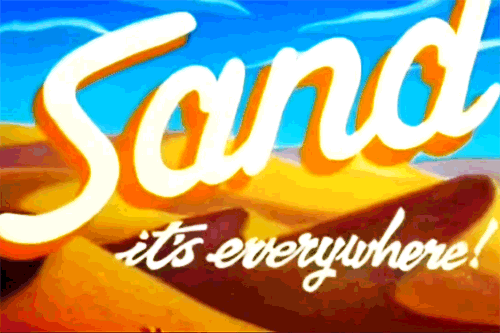
Pirate music suggestions
Oomoog the Ecstatic reacted to Muad'Dib for a topic
Also, this. Always pictured pirates to this particular part with the horns Also, I can totally picture a swordfight to this:1 point -
He was - and is - generally very restrained when it comes to the use of electronics. And especially in the 90s. It was far more overt and 'hokey' in the 80s, with stuff like "Training Montage" from SPACE CAMP or the Crimebuster theme from HEARTBEEPS.1 point
-
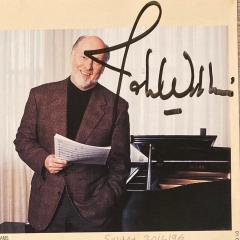
Hal Leonard Signature Editions
bollemanneke reacted to QuartalHarmony for a topic
Good question - I suppose the engravers would simply be restricted to whatever survived of the original pencil-and-paper scores. I seem to remember that Juillard's library will get WIlliams's personal archive when he finally disappears to become one with the Force, so it's possible.1 point -

Hal Leonard Signature Editions
bollemanneke reacted to QuartalHarmony for a topic
There's no point mucking about: how about the complete score to Empire in a study score version, like the yellow Ernst Eulenberg books? Now I'd pay some good dollar for that. One day, my brothers and sisters... one day. Mark1 point -

SUPERMAN: THE MOVIE - 3CD Set from La-La Land Records
Smeltington reacted to QuartalHarmony for a topic
The OST track (LLL CD3, T2) has rather atonal piano flourishes underlying the high synth parts from 2:09-3:09. I've just listened to it, closely followed by CD1, T2 and the latter part of the same segment, also starting at 2:09, has less piano later on. I think I prefer the OST in this instance. Talking (obliquely) of Krypton, I'd also like to shout out the masterful way Williams puts the Krypton theme into the minor at the beginning of The Fortress of Solitude. It's actually just a change of one note (out of eight) by a mere semitone, but it completely changes the feel of the motif: D-G-C-G-C-D-Eb-C. Later in the cue, when the Fortress is built, this makes the usual major key version of the theme sound even more triumphant: D-G-C-G-C-D-E-C. All from just changing a single note. What a craftsman. Mark1 point -
1 point
-
1 point
-
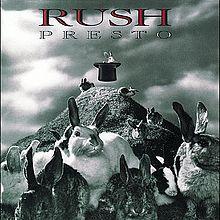
The Official La-La Land Records Thread
bollemanneke reacted to Naïve Old Fart for a topic
You call this "a glitch"?!1 point -
1 point
-

Pirate music suggestions
Yavar Moradi reacted to GerateWohl for a topic
My biggest reference to pirate sound was always Peter Pan.1 point -
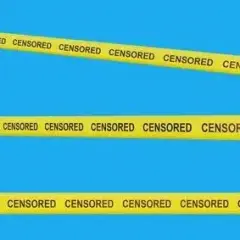
The Official La-La Land Records Thread
bollemanneke reacted to Jurassic Shark for a topic
Apparently, you don't like Granny Wendy, JFK, nor Nixon.1 point -
Pirate music suggestions
blondheim reacted to Marian Schedenig for a topic
Nautical, rather (though a favourite of mine), which I deliberately avoided in my above list. But in this case I'd also add:1 point -

What Is The Last Score You Listened To? (older scores)
GerateWohl reacted to Bespin for a topic
I love regional flutes. Ok, now, Bernard, I Said Bernard! Citizen Kane (McNeely re-recording) Fahrenheit 451 (McNeely re-recording) Vertigo (McNeely re-recording)1 point -

The Official La-La Land Records Thread
publicist reacted to Naïve Old Fart for a topic
Fuck Granny Wendy. I want a complete BORN ON THE FOURTH OF JULY.1 point -

The reply with a movie quote story game.
Sweeping Strings reacted to Naïve Old Fart for a topic
You can't win them all. (Fiona Volpe could kill me any time she wanted. Wow!)1 point -

What Is The Last Film You Watched? (Older Films)
Sweeping Strings reacted to Naïve Old Fart for a topic
Sweep, don't forget Randall P. McMurphy. Impeccable casting. The score currently resides at #5 on my all-time top-ten JW list. THE SEDUCTION OF SUKI AND THE BALLROOM SCENE is one of my top-five JW tracks. The suit who decided to replace it with Tourandot should have been shot immediately. TIME BANDITS speaks for itself. It's still an absolute delight. Who knew David Warner could do comedy?1 point -
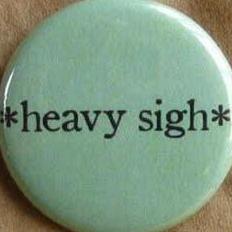
The reply with a movie quote story game.
Naïve Old Fart reacted to Sweeping Strings for a topic
James Bond, who only has to make love to a woman and she starts to here heavenly choirs singing and repents to the side of right and virtue. Well, not THIS one!1 point -

What are your favorite shots in a movie?
Naïve Old Fart reacted to Holko for a topic
Mephisto (1981)1 point -
I did quite a bit of work for Pirates...here is an example. This is from Disneyland Kinect Adevntures which I was an orchestrator on. pirates_music_pirates_bnk_s_2.wav1 point
-
Pirate music suggestions
Jurassic Shark reacted to Yavar Moradi for a topic
One of the best pirate scores EVER, original tracks never released but there’s this great re-recorded suite on Chandos: another absolute classic; Clifton Parker’s score for the very first live action Disney feature (again there’s a modern Chandos recording with over 20 min of the score): Not *exactly* a pirate movie, but another cracking seafaring score by the same composer over a decade later: Anne of the Indies by Waxman has some awesome stuff...for your compilation I’d use the Kunzel suite (which I can’t find online at the moment) but here’s the original recording: You should get this fine Kunzel album which in addition to a great sounding suite from Anne of the Indies also has other goodies like Waxman’s Captains Courageous and Bernstein’s The Buccaneer: https://www.discogs.com/Erich-Kunzel-Cincinnati-Pops-Orchestra-Masters-And-Commanders-Music-From-Seafaring-Classics/release/8869332 Some Captain Blood and The Sea Hawk by Korngold would also be good to include — maybe the Gerhardt recordings there. This is the one awesome cue I would absolutely prioritize including from the Pirates of the Caribbean franchise: I’ll come back if I think of more. Yavar1 point -
.thumb.gif.df2a851b259fbffe34b18fc1c796422a.gif)
Pirate music suggestions
Holko reacted to Cerebral Cortex for a topic
In the interest of providing some tracks outside the usual, Two Steps, while not film music composers, make a habit of usually having one pirate pun track per album and they're all usually bangers. You also have McCreary's theme to Black Sails. And since you mentioned Cutthroat Island, Debney recently brought back his pirate sensibilities for the latest SpongeBob movie to fun effect: And then I'll end by throwing in a little David Wise for good measure.1 point -

What Is The Last Score You Listened To? (older scores)
Bespin reacted to Naïve Old Fart for a topic
I hate you...twice.1 point -

The Official La-La Land Records Thread
bollemanneke reacted to bruce marshall for a topic
That is a ' clue'. " Hope" . Get it? Get it? As in "new" as in " a". 😗1 point -
John Williams & the Vienna Philharmonic: January 18/19 2020
crlbrg reacted to Marian Schedenig for a topic
A suite from Doctor Zhivago conducted by Valery Gergiev at the annual open air "Sommernachtskonzert". I haven't heard it myself.1 point -
It did take a long time; The roadblock to me getting started was having to open up almost every single track to note down the timestamps where it switches from one cue to the next. I often don't bother to do this with a lot of JW scores where he writes longer cues and it is usually obvious where the switch is in a track, and/or there is often only 2 cues in a track, etc But with this score, it's a hundred short cues so there's no way to really discuss anything without knowing exactly where each cue starts and ends, so that was the bulk of the work. Other than that, I had no idea how to present it for a while, until I had a apostrophe epiphany about the best way (I hope) to present it so now everything's coming together really quickly1 point
-
I actually find Men in Tights and Dracula: Dead and Loving far funnier than other Mel Brooks movies like Spaceballs1 point
-
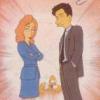
Meng: New album featuring recordings of Avner's Theme and Rounds
WilliamsStarShip2282 reacted to fommes for a topic
Thanks for bumping this, somehow I missed it before.1 point -
See? That wasn't so hard, didn't even take long! Or were you waiting for us to discover things, do mockups, get the cats out of the bags, then do this instead of having to be the one to break them to us 2 years ago?1 point
-
Phew! Got to the end of the score! Now just need to clean everything up and make it presentable1 point
-
.thumb.gif.df2a851b259fbffe34b18fc1c796422a.gif)
Any music by JW you wish he had done differently?
igger6 reacted to Cerebral Cortex for a topic
In continuing off desires on how to have done the end credits for TROS differently, it kills me that Williams didn't cease the opportunity to give us a Rey's Theme 2.0 of sorts to tie up the entirety of her theme in a nice bow as well as to comment on how much she as a character has changed. The theme itself gets such a workout throughout the film, what with all the numerous new variations and exciting new areas the theme is taken, that it is a big headscratcher on my end that what we get instead for the end credits is more or less what we got in the TFA end credits. I heard the first few bars of that opening build in the theater and I was really preparing myself for something special. He could have even played around a bit with the thematic connection between the TROS A-theme and her theme during the credits given how they follow one another in the finale. At least they each get their singular themes mentioned when they are dropped off at the destinations that will ultimately shape who they are as we encounter them in the following film. The lack of a musical mention for their brother/sister relationship used to bother me, but I later came to accept it as I feel like Williams intended for that to be the thematic representation of their relationship as siblings as they understand it, not the audience. It is not until that understanding emerges between the two that the theme can play and, well, they're not quite there yet in Episode III. The theme I also thinks acts as a commentary on how their relationship has evolved, and their relationship in ROTS is needless to say only just beginning.1 point -
Any music by JW you wish he had done differently?
Gurkensalat reacted to Joni Wiljami for a topic
What the hell? JFKs, Nixons and Shindlers are nice, probably just in the top 100 He should have skipped the whole 90's no wonder he was done and wanted to retire.1 point -
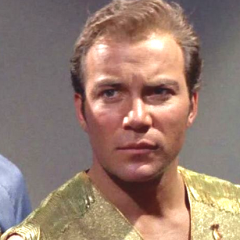
Fourth Abramsverse Star Trek film
Pieter Boelen reacted to Pellaeon for a topic
UPDATE: Paramount says this is not true and Star Trek movies are still in development.1 point -
Chapter 4 of Season 1 was initially my favourite of the mini-albums released for the show at the time of it's release. I'll echo something that Cerebral Cortex had said pages back, in that it amazes me how the new theme (multi-part theme, that is) for this episode is such an amazing little earworm of a melody that is exclusive to this chapter alone. It appears nowhere else in the score, and will likely have little reason to return in Season 2. And it's a better theme than most films (let alone shows) could ever hope to get in today's industry! Anyways, fascination aside, it's probably the one that has played in my head the most since I first heard it. Let's take a closer look! The Ponds of Sorgan introduces a whole new soundscape, with the Razor Crest receiving a quaint and idyllic setting on acoustic guitar and clarinet. This small ensemble of instruments is representative of the villagers in the episode, and we hear the first shades of their minor motif played early on. The orchestra takes a back seat to what can only be described as an alarm, which the strings rustle beneath. Bombastic synths break through (which quite honestly sound like barking dogs) and we hear a fantastic build-up to the smashing one-off theme, accompanied by a simple but propelling beat (da--da--da--da--da--etc.). The frantic B section gets a running, and segues into the title card, with now familiar piano and fluttering synth. With Off the Grid we go off the beaten path, at least for some interesting developments. The fluttering synth and fanfare get new modes, the latter playing over "news reel" strings. We emerge into a peaceful environment of synth and marimba (don't quote me), and hear a simply perfect interplay between the recorder and Razor Crest themes, further displaying just how complimentary they are to each other. Keep an Eye on the Asset, unreleased, provides building suspense in the string section as Mando tracks Cara's footprints. Please Come In, not on the album, is an encore of the earlier guitar rendition of the Razor Crest, this time with stronger involvement from the strings. Can I Feed Him? continues this scenic mood with innocent woodwinds and the guitar for the villagers. We hear the Razor Crest on flute, a solemn passage for the B section of the utility theme on horn, and an alarming bustle from the strings to round out the cue. Training the Plebs is without a doubt the cue of the chapter and the defining setpiece for the new theme. First off, and this is just something I noticed recently, it recycles the three-note "marimba vibe" synth from Off the Grid, and essentially plays it under most of the track, this time with an increased tempo. There are so many neat elements playing off of each other here, making this one of the most intriguing cues from an orchestration standpoint. I recommend listening to it very carefully and trying to separate all the different parts at work. In a lot of ways it is structured as a fugue, which really lends to my above points. Camp Attack is a synth plaster board, non-descript at times, but effective and not without a fair share of cool moments (the sound at 0:30 and a very heavy synth patch at 1:33). That takes us immediately into a more expansive setpiece with Spirit of the Woods. As a direct follow-up to Camp Attack, we hear a fusion of electronics and orchestra for extended passages throughout, slowly phasing out the computerized elements in order to return to a sense of calm in the closing cues. There's a simply fantastic throat singing effect that I was reminded of when I saw the trailer for the second season, which had a similarly unique musical choice. While I doubt that the music in the trailer is any reflection of Goransson's upcoming score, that particular part did well to stick out at me (fingers crossed all the same). The beat of the chapter theme serves as underlayment for interludes of the B sections. We then hear more of that deep voice work and some very Williams-y trumpet hits (think the destruction of the Death Star). The main fanfare gets down to business as the action reaches a climax, and the tension releases. Two short cues presumably not on the album follow: Fits Right In and Leaving Him Here. The former begins with that same rendition of the Razor Crest motif, moving into the recorder riff on what must be clarinets. Ominous music plays as bounty hunter appears in the woods. It is quite possible that I may have misheard, and that one (or both) of these cues make up the OST's Stay, but I know there are at least sections here that have yet to be heard clean. Mando Says Goodbye to the villagers, and a fitting reprise of the Can I Feed Him? melody plays them out. The Razor Crest gets a second go at its Off the Grid setting, played by full, lush strings with joyous but grounded interjections from the brass. The classic space cutaway zooms out the cue and closes the episode. Had another great time revisiting this album! I believe Stu did an isolated score for a large part of this episode, and while I cannot find the video presently I highly recommend it as an opportunity to see how it lines up to the picture, particularly the training and battle scenes (EDIT: see Stu's post below me!). Thanks again for reading, and feel free to join the conversation, perhaps by sharing your thoughts on a particular cue or idea. Again, I will try my best to keep these coming in time for the incoming buffet in the coming months!!!1 point
-
If I remember the interviews from back then, the reason for the chop job was less Williams's time and more Lucas/ILM working until the last minute on that part.1 point
-

Ludwig Göransson & Joseph Shirley's THE MANDALORIAN (2019-present)
Cerebral Cortex reacted to Dr. Rick for a topic
I just watched it and was amazed by how many different and unusual instruments were used for the main title, the man is definitely talented with his ability to play so many different instruments, I can't even begin to play one! LOL1 point -
So, as we can read in the booklet, both versions of Journey were recorded on March 7th, and both versions of Blue Fairy on March 15th, so this correspondence is almost strange. Also, did he write new ones quickly for the afternoon session or did he just come prepared with two versions on both days? Both Journeys match up somewhat differently but not badly with Stored Memories, recorded on Feb 15. Nevermind. Version one: Blue Fairy alternate, Journey part 1, Stored Memories Version two: Blue Fairy main program version, Journey part 2, Stored Memories Version three: film edit. Blue fairy main program version and orchestral excerpt switching back and forth, microedited twice, the last bit slowed down artificially. Journey pt.1 looped, switches to pt.2 midway. Journey pt.2 microedited, then looped to replace this portion of Stored Memories.1 point
-
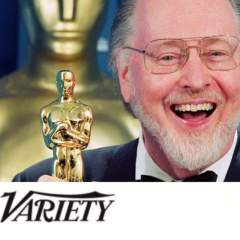
Was Jurassic Park Theme song original?
WilliamsStarShip2282 reacted to Josh500 for a topic
This is a joke, right? They don't sound anything alike.1 point -
I used to sing in a Russian choir. Just stumbled over the following...ARE YOU FUCKING KIDDING ME?!?1 point
-
Was Jurassic Park Theme song original?
WilliamsStarShip2282 reacted to Oomoog the Ecstatic for a topic
1 point -
1 point

